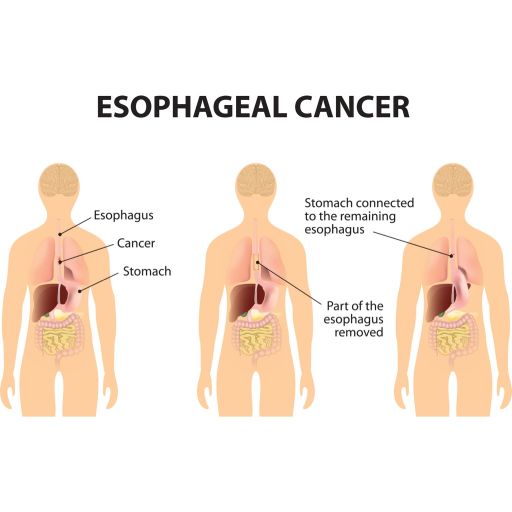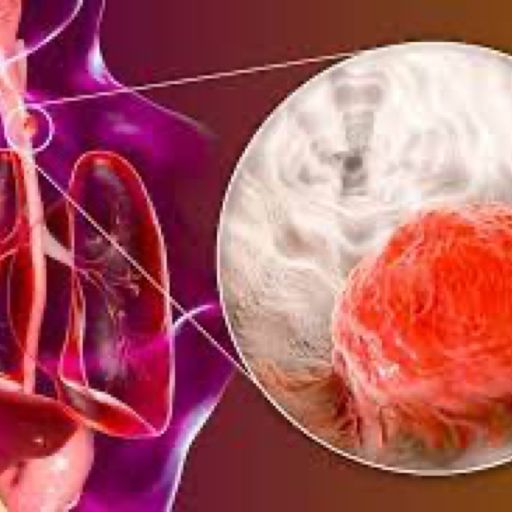How to spot early signs of esophageal cancer?
Esophageal cancer is the unlimited growth of cells in the esophagus, which is a long hollow tube which runs from the throat to the stomach. This tube moves swallowed food from the throat to the stomach for digestion.
Esophageal cancer generally begins in those cells which are present in the esophagus. It can occur anywhere in the esophagus. It usually occurs in men.
Importance of early detection
According to some experts, survival rates of people with early stages of esophageal cancer are quite higher. This implies that early detection of this type of cancer increases the chances of survival. It will be easier to treat this cancer in its early stages.
Types of esophageal cancer
Esophageal cancer has been divided based on the type of cells involved. Treatment options usually depend on the type of esophageal cancer one has.
Some of the common types of esophageal cancer are as follows:
●Squamous cell carcinoma: Squamous cell carcinoma begins from the flat, thin cells in the surface of the esophagus.
This type of esophageal cancer usually occurs in the upper and middle parts of the esophagus. Smoking and drinking too much alcohol are the main causes of Squamous cell carcinoma. This is the most common type of esophageal cancer across the globe
●Adenocarcinoma: Adenocarcinoma begins from the cells of the glands in esophagus. These glands secrete mucus. This type of esophageal cancer usually occurs in the lower part of the esophagus. It is the most common form of cancer in the United States of America or USA. This type of cancer usually occurs in middle-aged men.
● Small cell carcinoma: Small cell carcinoma begins from the neuroendocrine cells which releases hormones in response to nerve signals. It is a rare form of esophageal cancer.

Risk factors associated with esophageal cancer
Risk factors of esophageal cancer include those habits and conditions which causes irritation in the esophagus. Some of the risk factors of esophageal cancer are as follows:
●Smoking
●Drinking alcohol
●Barrett esophagus
●Gastroesophageal reflux disease, commonly known as GERD
●Obesity
●Achalasia
Causes of esophageal cancer
Esophageal cancer occurs when cells on the surface of the esophagus start to make changes in their DNA. DNA of a cell has all the instructions regarding the functions of a cell. In case of healthy cells, the DNA provides instructions to grow and multiply at a fixed rate. It also instructs the cells to die at a particular time.
The situation becomes different in case of cancer cells. The DNA of cancer cells instructs them to multiply at a faster rate. These cells may keep living even after the death of healthy cells. This will cause too many cells.

Early signs and symptoms of esophageal cancer
Some of the most common symptoms of esophageal cancer have been described below:
●Trouble swallowing: Trouble swallowing is one of the most common symptoms of esophageal cancer. It is also known as dysphagia. This can feel like food getting struck in the throat or chest which can cause an individual to choke on their food.
This is usually mild in the beginning, but gradually gets worse over time as the cancer grows and the opening becomes smaller.
When swallowing becomes harder, people usually make changes in their diet without thinking about the possibility of cancer. They may take smaller bites and chew their food slowly, but as the cancer grows, the problem will become worse.
●Vocal hoarseness: When the esophageal cancer grows, it damages the laryngeal nerves and disrupts neutral impulses to the voice box. This paralyzes the vocal cords, resulting in a hoarse, scratchy voice.
●Chest pain: Chest pain can also be a symptom of esophagus cancer. Some people may feel pressure or burning in their chest. People usually ignore this symptom because this symptom is similar to that of heartburn. This discomfort usually occurs in few seconds after swallowing when the food reaches the area where the tumor is present.
●Unintentional weight loss: Unintentional weight loss without any physical activity or changes can be regarded as symptoms of various underlying health conditions like esophageal cancer.
This can be the result of eating less food mainly due to troubled swallowing. If a person notices a significant decrease in their body weight, he or she should immediately contact a medical professional.
●Fatigue and weakness: Cancer can affect the energy levels of a body which can result in feelings of tiredness. Fatigue and weakness are some of the common symptoms of esophageal cancer.
It is important to note the fact that this kind of fatigue is different from feeling drowsy. This kind of fatigue will make it difficult to perform even the simple daily tasks. An individual may feel tired even after having a good night sleep.

Steps for preventing esophageal cancer
Unfortunately, there is no sure way of preventing this type of cancer. However, an individual can reduce the risks by following the methods mentioned below:
Try to avoid drinking alcohol
A person can reduce the risks of esophageal cancer by not drinking alcohol, since consumption of alcohol is one of the major causes of this type of cancer.
Alcohol can damage the lining of esophagus over some period of time. This is the reason why alcohol should be avoided. If an individual is unable to give up alcohol completely, they should then try to drink it in moderation.
Exercise on a regular manner
Regular exercises are very much effective in reducing the risks of esophageal cancer. An individual should do exercises for at least half an hour on a daily basis. This will keep cancer and other types of deadly diseases at bay.
Try to maintain a healthy weight
Obesity is one of the risk factors associated with esophageal cancer so maintaining a healthy diet is very crucial. If an individual is obese, he or she can then take initiatives for reducing weight. That individual should eat a diet of fruits and vegetables, which will reduce the risks of squamous cell carcinoma.
He or she can also contact a healthcare professional and enquire them about the ways of reducing weight.
Esophageal cancer is a deadly disease and early detection will make the treatment process much easier. This is the reason why people should consider the symptoms seriously. They should also abstain from harmful practices and try to follow a healthy lifestyle which will minimize the risks of esophageal cancer.
OTHER NEWS
-
- Understanding Credit Life Insurance: Protection for Borrowers!
- By Wendy 14 Aug,2023

-
- How to Take Advantage of High Interest Rates to Grow Your Savings
- By Prodosh Kundu 08 Aug,2024

-
- What is home insurance vs. home warranty? Is it necessary to have one or not?
- By Anna 24 Apr,2023

-
- Real Estate Investment Needs to be Careful!
- By Little Grapes 24 Apr,2023

-
- Hotel Operations: Navigating the Heartbeat of Hospitality
- By Little Grapes 11 Dec,2023

-
- Maximizing Credit Card Rewards: How to Redeem Them Effectively!
- By Wendy 30 May,2023

-
- Risk Management Strategies in Financial Planning That Are Often Overlooked
- By Prodosh Kundu 15 May,2024

-
- Navigating the Pros and Cons: A Comprehensive Guide to Buying Newly Built Homes!
- By Wendy 20 Nov,2023

-
- Who is the Primary Lender When Applying for a Home Loan? These Points are Important!
- By Little Grapes 24 Apr,2023

-
- If you had Enough Money, Which Country Would you buy a House in?
- By Little Grapes 24 Apr,2023

-
- How to Find the Right Injury Accident Lawyer for Your Case
- By Prodosh Kundu 27 Aug,2024

-
- How to Choose Your Snowbird Home: Rent or Buy?
- By Prodosh Kundu 09 Oct,2024

 1
1 1
1